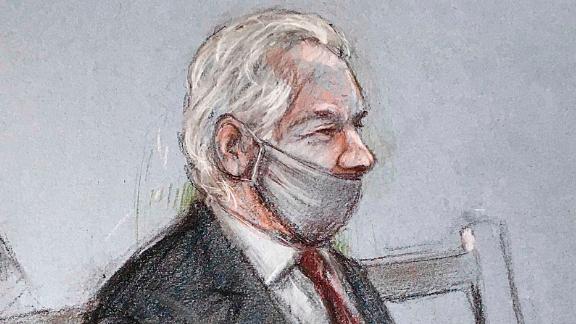
A key witness has reportedly admitted that he lied in his testimony against WikiLeaks founder Julian Assange, who faces up to 175 years in prison if extradited to the United States.
The former WikiLeaks volunteer-turned-FBI informant, Sigurdur Ingi Thordarson, told Icelandic newspaper Stunden that he fabricated important parts of the accusations in the indictment against Assange.
Thordarson said that Assange never instructed him to carry out any hacking. He had previously claimed that Assange asked him to hack into lawmakers’ computers to access the recordings of their private phone conversations.
Thordarson now says he “had in fact received some files from a third party, who claimed to have recorded MPs and had offered to share them with Assange without having any idea what they actually contained,” according to the newspaper.
“He claims he never checked the contents of the files or even if they contained audio recordings as his third-party source suggested,” the report added.
In a reaction to the report, former US National Security Agency (NSA) member Edward Snowden took to Twitter, saying, “This is the end of the case against Julian Assange.”
Investigative journalist Glenn Greenwald also said, “It should be.”
Assange, who spent more than two years in prison in Britain, is wanted in the US for espionage charges. He is accused of leaking classified information in 2010, when WikiLeaks published documents detailing abuses, including possible war crimes, carried out by the US military in Afghanistan and Iraq.
If extradited to the US, he could be imprisoned for up to 175 years. But a British judge blocked the US request for his extradition in January.
Judge Vanessa Baraitser said Assange’s extradition would be “oppressive” due to his poor mental health that would raise the risk of suicide.
After publishing hundreds of thousands of US military and diplomatic documents, Assange took refuge in the Ecuadorian Embassy in London and stayed there for seven years until he was arrested by UK police on the embassy’s premises in April 2019 and forcefully dragged out of the building.
Earlier this month, the United Nations Commission on Human Rights called on the UK government to release the journalist.
UN Special Rapporteur on torture Nils Melzer said earlier this month that Assange’s imprisonment is “one of the biggest judicial scandals in history,” and called for his immediate release.












